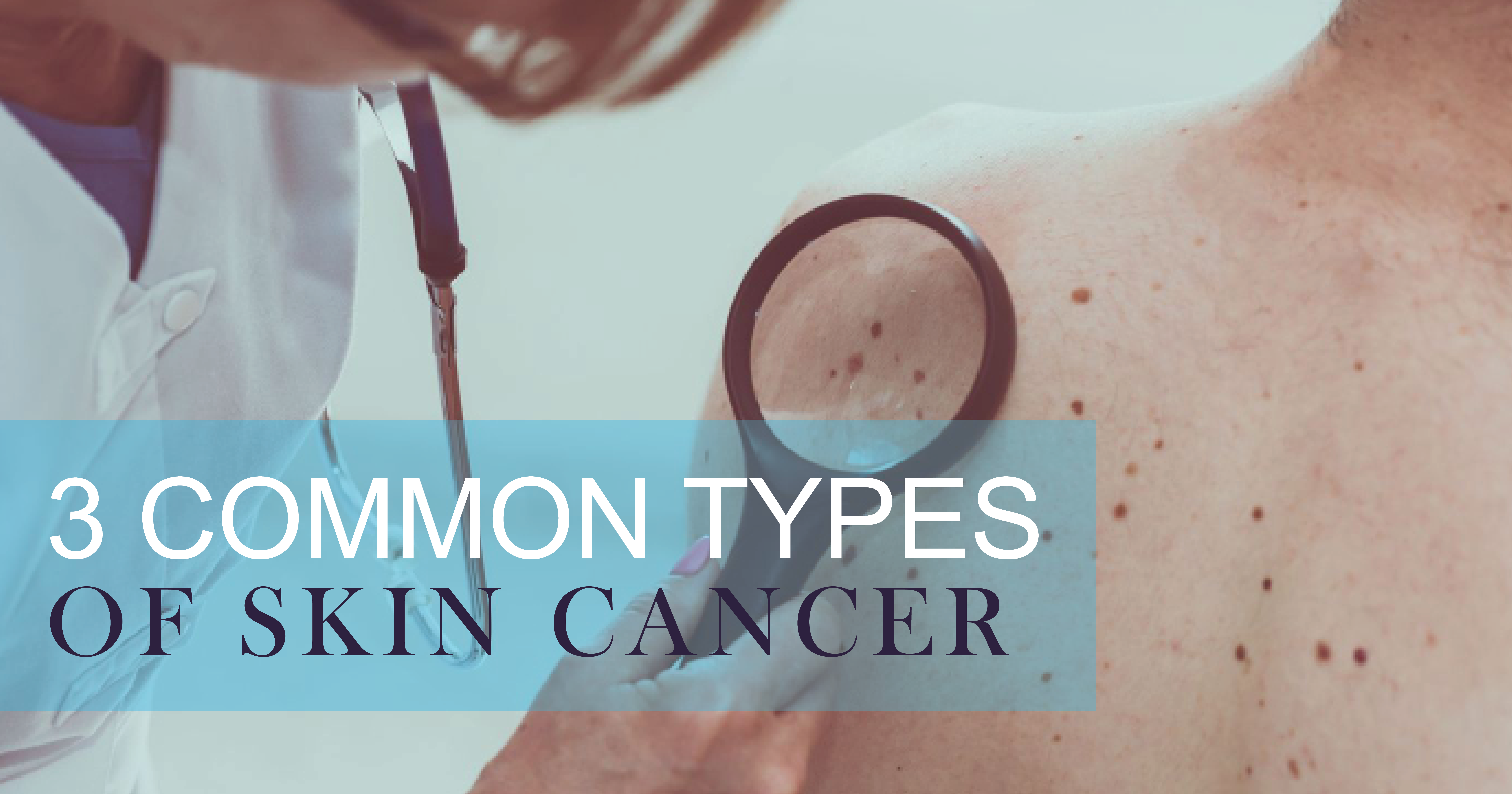
Skin cancer is one of the most common cancer types. It’s important to perform regular self-checks to catch any suspicious spots early. If caught soon enough, the treatment success increases significantly.
There are many types of skin cancer which can be more common in different areas of the body and may show up in a variety of forms. There are three common types of skin cancer according to the CDC: basal cell carcinoma, melanoma, and squamous cell carcinoma.
Basal Cell Carcinoma
Basal cell carcinoma is typically found on the head or neck and may first appear as a pale patch of skin or a waxy translucent bump. A telling sign is a blood vessel or indentation in the center of the bump. If the cancer spots develop on the chest, it appears similar to a brown colored scar or flesh-colored lesion. Watch for bleeding or oozing, this is a sign it is more developed.
Squamous Cell Carcinoma
Squamous cell carcinoma can also take the form of a lump on the skin. These are firm lumps and are rough on the surface, unlike basal cells which have a smooth and pearly appearance. This cancer type usually develops on the head, neck, hands or arms, but also may develop in other areas such as genital region or in scars or skin sores.
Melanoma
Melanoma is much less common than basal cell and squamous cell carcinoma. Although less common, melanoma is more dangerous because it’s much more likely to spread to other parts of the body if not caught and treated early. According to American Cancer Society, melanoma develops when melanocytes (the cells that give the skin its tan or brown color) start to grow out of control. Melanomas can develop anywhere on the skin, but they are more likely to start on the trunk (chest and back) in men and on the legs in women. The neck and face are other common sites.
What are the Signs of Skin Cancer?
Typically, skin cancer develop on exposed areas of the skin, making early detection more possible. It’s important to regularly examine your skin to catch any unusual changes to an existing mole or a suspicious growth.
Although skin cancer can develop in a variety of locations, and appear in different forms, there are common symptoms to look for when checking your skin for suspicious spots no matter the location. Here are some common signs of skin cancer to keep in mind:
- An unusual skin growth or sore that has not gone away
- Spots that are raised and/or bleed easily
- The size and shape of the spot changes over time
When performing a self-screen, remember to check less exposed areas of the body, as these can still develop skin cancer although less likely: underneath nails, on the palms of hands, soles of feet, genitals and the eyes.
If you notice any of these symptoms, talk to your primary care provider or dermatologist about your concerns.
Expert Cancer Care
Our caring team of experts are here to provide you with a custom-tailored treatment plan unique to your diagnosis, tumor size, location and involvement. Click on the button below to explore available cancer screenings and treatment options.


